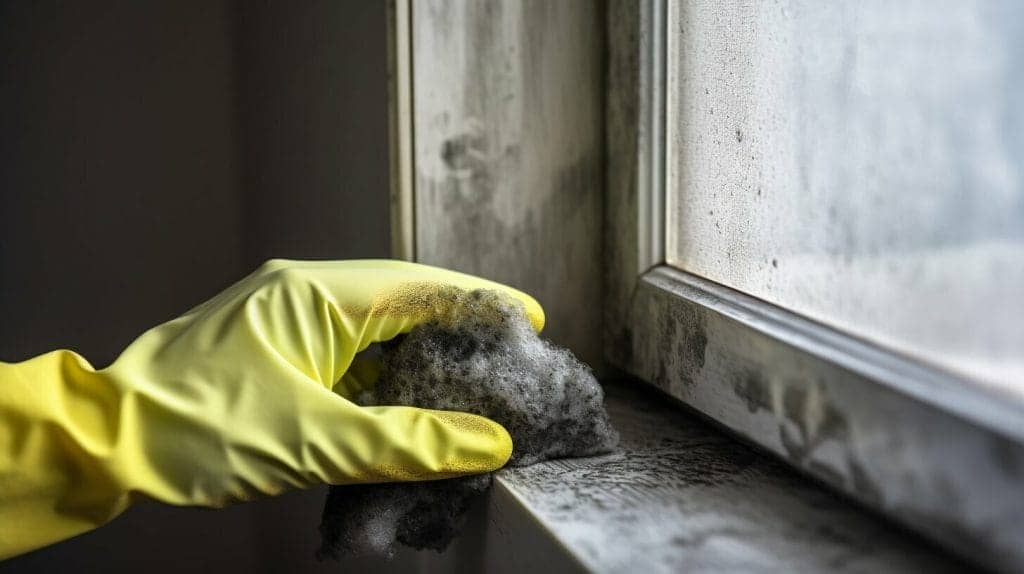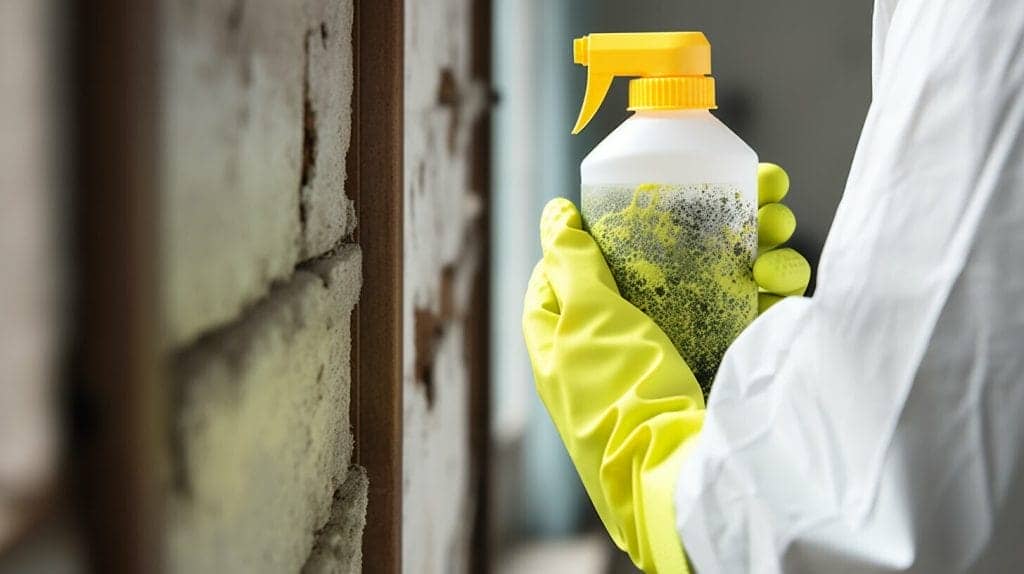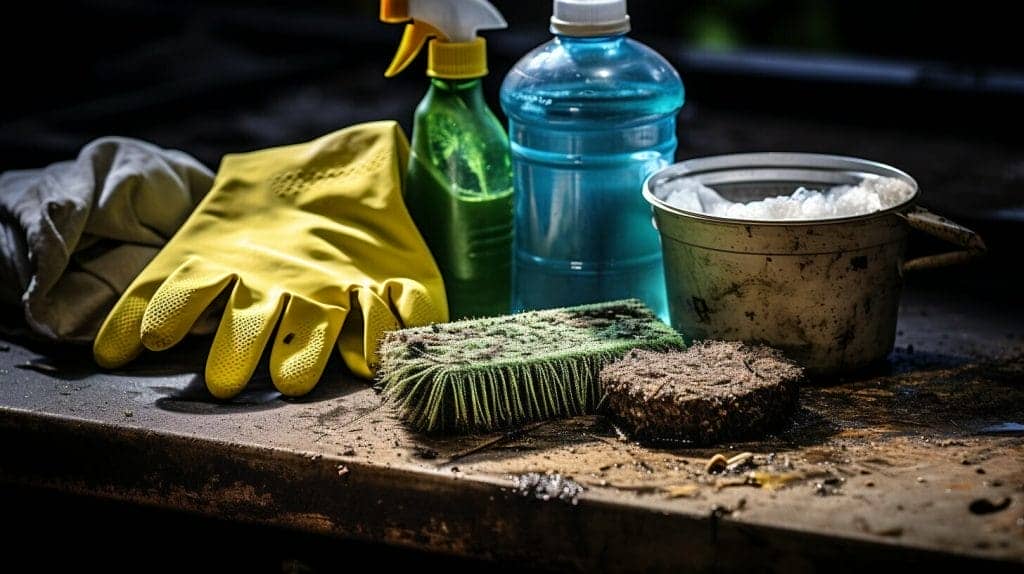In this article, we will provide you with an overview of tongue mold, including its causes, symptoms, and treatment options. Maintaining good oral health is essential, and tongue mold can be a hindrance to this. It can occur due to poor oral hygiene, weakened immune system, and the use of certain medication.
Read on to learn more about tongue mold and how to keep your tongue healthy.
What is Tongue Mold?
Tongue mold, also known as oral thrush or oral candidiasis, is a fungal infection that can affect the tongue, gums, and other areas of the mouth. It is caused by an overgrowth of a type of yeast called Candida albicans, which can be found naturally in the mouth but can multiply rapidly and cause an infection in certain circumstances.
While tongue mold can affect anyone, certain factors can increase the risk of developing the condition, including poor oral hygiene, a weakened immune system, and the use of certain medications such as antibiotics or corticosteroids.
The symptoms of tongue mold can vary from person to person but usually include white or yellow spots or patches on the tongue or other areas of the mouth, bad breath, and a bad taste in the mouth. In severe cases, the infection can spread to other parts of the body, including the esophagus and lungs.
Proper oral hygiene, including regular brushing and flossing, can help prevent the development of tongue mold. It is also important to maintain a healthy diet and lifestyle, as a weakened immune system can increase the risk of infection. If you experience symptoms of tongue mold, it is important to seek professional diagnosis and treatment to prevent the condition from progressing and potentially causing more serious health problems.
Causes of Tongue Mold
Tongue mold, also known as oral thrush or candidiasis, is a fungal infection caused by the Candida fungus. While the Candida fungus is naturally present in the mouth, an overgrowth can lead to tongue mold.
There are several factors that can contribute to an overgrowth of Candida fungus, including:
| Causes | Description |
|---|---|
| Poor oral hygiene | Not brushing and flossing regularly can cause a buildup of bacteria and fungus in the mouth, leading to tongue mold. |
| Use of certain medications | Antibiotics, steroids, and chemotherapy drugs can weaken the immune system, allowing for an overgrowth of Candida fungus. |
| A weakened immune system | Medical conditions such as diabetes, HIV/AIDS, and cancer can weaken the immune system, making it easier for the Candida fungus to thrive. |
If left untreated, tongue mold can spread to other areas of the mouth and even to other parts of the body. It is important to seek professional treatment if you suspect you have tongue mold.
Prevention
Preventing tongue mold can be achieved by practicing good oral hygiene, such as brushing and flossing daily, using a tongue scraper to remove bacteria and fungi from the tongue, and avoiding certain foods and beverages that can contribute to an overgrowth of Candida fungus.
Symptoms of Tongue Mold
Tongue mold can present a variety of symptoms, some of which may be mild while others may be more severe. Recognizing the symptoms of tongue mold is important for seeking proper treatment and preventing its spread.
White or Yellow Spots on the Tongue
The most common symptom of tongue mold is the appearance of white or yellow spots on the tongue. These spots may be small or large and may be accompanied by a fuzzy or hairy texture. In some cases, the spots may also spread to other parts of the mouth, such as the gums or roof of the mouth.
Bad Breath
Tongue mold can also cause bad breath, which may be persistent and difficult to get rid of even with brushing or mouthwash. The odor may be unpleasant and may cause embarrassment in social situations.
Bad Taste in the Mouth
In addition to bad breath, tongue mold may also cause a bad taste in the mouth. This taste may be metallic, bitter, or otherwise unpleasant and may persist even after brushing or using mouthwash.
If you are experiencing any of these symptoms, it is important to seek treatment from a healthcare professional.
Treatment Options for Tongue Mold
There are several treatment options available for tongue mold, depending on the severity of the infection. It is important to seek medical advice before beginning any treatment regimen.
Medications
If the tongue mold is severe, a doctor may prescribe antifungal medications to treat the infection. These medications are available in the form of tablets, lozenges, or mouthwashes. It is important to complete the full course of treatment to effectively clear the infection.
Home Remedies
There are several home remedies that can help treat tongue mold. Rinsing the mouth with a saltwater solution or using natural antifungal remedies like tea tree oil or coconut oil can be effective in reducing the infection. However, it is important to note that home remedies should not be used as a substitute for professional medical advice.
Lifestyle Changes
In addition to medication and home remedies, making lifestyle changes can also help reduce the risk of developing tongue mold. Practicing good oral hygiene, including brushing and flossing regularly and using a tongue scraper, can help prevent the growth of fungus on the tongue. Eating a healthy diet and avoiding smoking and excessive alcohol consumption can also help maintain oral health.
Treatment Options for Tongue Mold
There are various treatment options available for tongue mold, including medications, home remedies, and lifestyle changes. Here are some effective ways to treat tongue mold:
| Method | Description |
|---|---|
| Antifungal medications | A healthcare professional may prescribe antifungal medications, such as clotrimazole or fluconazole, to treat tongue mold. These medications work by killing the fungus responsible for the infection. |
| Oral antiseptics | Oral antiseptics, such as chlorhexidine, can help kill the fungus and prevent its growth on the tongue. These antiseptics are available in the form of mouthwash or lozenges. |
| Proper oral hygiene | Maintaining good oral hygiene habits, such as brushing your teeth twice a day and flossing daily, can help prevent the development of tongue mold. Be sure to also clean your tongue with a tongue scraper or brush to remove any buildup. |
| Saltwater rinse | Using a saltwater rinse can help reduce the symptoms of tongue mold, such as inflammation and pain. Mix a teaspoon of salt with warm water, swish it around your mouth for about 30 seconds, and spit it out. Repeat this process a few times a day. |
| Natural antifungal remedies | Some natural antifungal remedies, such as tea tree oil and apple cider vinegar, may help treat tongue mold. However, it’s important to consult with a healthcare professional before using these remedies to ensure they are safe and effective for you. |
When to See a Doctor
If your symptoms persist despite using home remedies or if you have a weakened immune system, you should see a healthcare professional for diagnosis and treatment. They may prescribe stronger medications or recommend further testing to identify the underlying cause of your tongue mold.
Prevention of Tongue Mold
Tongue mold can be prevented through simple measures that promote good oral hygiene and overall health. By following the tips below, you can reduce your risk of developing tongue mold and other oral health issues:
- Brush your teeth twice daily with fluoride toothpaste.
- Use a tongue scraper daily to remove bacteria and debris from the tongue.
- Floss at least once a day to remove plaque from between teeth.
- Eat a balanced diet that includes plenty of fruits and vegetables.
- Drink water throughout the day to help flush away bacteria.
- Avoid smoking and using tobacco products.
- Limit your intake of sugary and acidic foods and drinks.
- Visit your dentist regularly for checkups and cleanings.
By incorporating these habits into your daily routine, you can help keep your tongue and oral cavity healthy and prevent the development of tongue mold and other oral health issues.
Tongue Health and Oral Hygiene
Good oral hygiene is crucial for maintaining tongue health and preventing tongue mold. The tongue is a breeding ground for bacteria, which can easily accumulate and cause infection if proper oral hygiene is not practiced.
Regular brushing and flossing can help remove bacteria and food particles from the tongue. Tongue scrapers can also be used to gently remove any buildup on the surface of the tongue.
| Practices for Maintaining Tongue Hygiene: | Products for Maintaining Tongue Hygiene: |
|---|---|
|
|
If you are experiencing symptoms of tongue mold, it is important to seek professional diagnosis and treatment. In some cases, tongue mold may require medication to fully eliminate the infection.
By practicing good oral hygiene and seeking prompt treatment for any symptoms of tongue mold, you can maintain optimal tongue health and prevent future infections.
Oral Health and Immune System
Good oral health is not just about maintaining a clean mouth and fresh breath. It is also an essential part of maintaining a strong immune system. Your mouth is the gateway to your body, and if you do not take proper care of it, harmful bacteria and other pathogens can enter your bloodstream and cause infections and other health problems.
The Link Between Oral Health and Immune System
Your mouth contains millions of bacteria that are typically harmless if you maintain good oral hygiene. However, if you do not brush and floss regularly, these bacteria can build up and form plaque, which can lead to cavities and gum disease. When your gums become inflamed, they release harmful bacteria into your bloodstream, triggering an immune response.
If your immune system is weak, it may not be able to fight off these bacteria effectively, leading to systemic inflammation and chronic diseases such as heart disease, diabetes, and cancer. Conversely, a strong immune system can help protect against oral infections and keep your mouth healthy.
How to Boost Your Immune System for Better Oral Health
There are several ways to boost your immune system to improve your oral health:
- Eat a healthy diet rich in fruits, vegetables, and whole grains
- Get enough sleep and manage stress levels
- Avoid smoking and excessive alcohol consumption
- Exercise regularly
- Take vitamins and supplements as needed
By taking care of your overall health and immune system, you can also improve your oral health and reduce your risk of developing tongue mold and other oral infections.
Tongue Mold in Children
Children can be more susceptible to tongue mold due to their weaker immune systems and developing oral hygiene habits. It is important for parents to help their children maintain good oral hygiene to prevent the development of tongue mold.
Some tips for preventing tongue mold in children include:
- Encouraging regular brushing and flossing
- Limiting sugary and acidic foods and drinks
- Encouraging regular dental check-ups
- Teaching children to avoid sharing utensils or drinks with others
If parents suspect their child has developed tongue mold, they should take them to a healthcare professional for diagnosis and treatment. Treatment options for children may include antifungal medications or home remedies, depending on the severity of the condition.
Tongue Mold in Older Adults
Older adults may be more susceptible to developing tongue mold due to age-related changes in oral health and the use of certain medications that can weaken the immune system. As we age, our mouths produce less saliva, which can lead to dry mouth and an increased risk of oral infections, including tongue mold.
In addition, older adults may be taking medications that can suppress the immune system, making it more difficult for the body to fight off infections like tongue mold. These medications can include corticosteroids, chemotherapy drugs, and immunosuppressants.
To prevent tongue mold in older adults, it is important to maintain good oral hygiene habits, including brushing and flossing regularly and using an antimicrobial mouthwash. Drinking plenty of water and avoiding tobacco and alcohol can also help improve oral health. Older adults should also speak with their healthcare provider about any medications they are taking that may affect their immune system and discuss ways to mitigate these effects.
Common Questions about Tongue Mold in Older Adults
- Can tongue mold be treated in older adults? Yes, tongue mold can be treated in older adults with antifungal medications, oral rinses, and other treatments recommended by a healthcare professional.
- Is tongue mold common in older adults? Tongue mold can occur in individuals of any age, but older adults may be at a higher risk due to age-related changes in oral health and the use of certain medications.
- Can poor oral hygiene contribute to tongue mold in older adults? Yes, poor oral hygiene can contribute to tongue mold in older adults, as well as individuals of any age. It is important to brush and floss regularly and practice good oral hygiene habits to prevent the development of tongue mold.
Home Remedies for Tongue Mold
While medication and medical treatments are often necessary to treat tongue mold, there are also several home remedies that can help alleviate symptoms and prevent its recurrence. Here are some effective and natural ways to treat tongue mold:
Saltwater Rinse
A saltwater rinse is a simple and effective way to help treat tongue mold. Mix half a teaspoon of salt with a cup of warm water, swish the solution around your mouth for about 30 seconds, and then spit it out. Repeat this process several times a day to help alleviate symptoms and prevent the growth of mold on your tongue.
Tea Tree Oil
Tea tree oil is a natural antifungal remedy that can help treat tongue mold. Mix a few drops of tea tree oil with a carrier oil, such as coconut oil, and apply it to your tongue using a cotton swab. Leave it on for a few minutes before rinsing your mouth with warm water. Repeat this process two to three times a day until your symptoms improve.
Probiotics
Probiotics are beneficial bacteria that can help restore the natural balance of microorganisms in your mouth and prevent the growth of mold on your tongue. Eat foods that are rich in probiotics, such as yogurt, kefir, and sauerkraut, or take a probiotic supplement to help treat and prevent tongue mold.
Garlic
Garlic is known for its antifungal properties and can be an effective natural remedy for tongue mold. Crush a few garlic cloves and mix them with a little honey to create a paste. Apply the paste to your tongue and leave it on for a few minutes before rinsing your mouth with warm water. Repeat this process two to three times a day until your symptoms improve.
Baking Soda
Baking soda is a natural antiseptic that can help reduce the growth of mold on your tongue. Mix a tablespoon of baking soda with a cup of warm water and use the solution as a mouthwash. Swish the solution around your mouth for about 30 seconds and then spit it out. Repeat this process two to three times a day to help alleviate symptoms and prevent the growth of mold on your tongue.
FAQ about Tongue Mold
Q: What is tongue mold?
A: Tongue mold is a fungal infection that can occur on the tongue due to various factors such as poor oral hygiene, weakened immune system, and certain medications. It appears as white or yellow spots on the tongue, and can cause bad breath and a bad taste in the mouth.
Q: How is tongue mold diagnosed?
A: A healthcare professional can diagnose tongue mold by examining the tongue and taking a sample of the affected area for testing. It is important to seek professional diagnosis for proper treatment.
Q: What are the treatment options for tongue mold?
A: Treatment options for tongue mold include antifungal medications, home remedies such as saltwater rinses and natural antifungal remedies, and lifestyle changes such as improving oral hygiene and boosting the immune system.
Q: Can tongue mold be prevented?
A: Yes, tongue mold can be prevented through proper oral hygiene, maintaining a healthy diet, and making lifestyle changes such as quitting smoking and reducing stress. It is also important to address any underlying health conditions that could weaken the immune system.
Q: Is tongue mold contagious?
A: Tongue mold is not typically contagious, but it is important to practice good hygiene to prevent its spread or recurrence.
Q: Can tongue mold cause other health problems?
A: While tongue mold is typically not a serious health concern, it can indicate underlying health issues such as a weakened immune system. If left untreated, tongue mold can also lead to oral thrush or other fungal infections. It is important to seek professional diagnosis and treatment if symptoms persist.
Dr. Francisco Contreras, MD is a renowned integrative medical physician with over 20 years of dedicated experience in the field of integrative medicine. As the Medical Director of the Oasis of Hope Hospital in Tijuana, Mexico, he has pioneered innovative treatments and integrative approaches that have been recognized globally for the treatment of cancer, Lyme Disease, Mold Toxicity, and chronic disease using alternative treatment modalities. Dr. Contreras holds a medical degree from the Autonomous University of Mexico in Toluca, and speciality in surgical oncology from the University of Vienna in Austria.
Under his visionary leadership, the Oasis of Hope Hospital has emerged as a leading institution, renowned for its innovative treatments and patient-centric approach for treating cancer, Lyme Disease, Mold Toxicity, Long-Haul COVID, and chronic disease. The hospital, under Dr. Contreras's guidance, has successfully treated thousands of patients, many of whom traveled from different parts of the world, seeking the unique and compassionate care the institution offers.
Dr. Contreras has contributed to numerous research papers, articles, and medical journals, solidifying his expertise in the realm of integrative medicine. His commitment to patient care and evidence-based treatments has earned him a reputation for trustworthiness and excellence. Dr. Contreras is frequently invited to speak at international conferences and has been featured on CNN, WMAR2 News, KGUN9 News, Tyent USA, and various others for his groundbreaking work. His dedication to the medical community and his patients is unwavering, making him a leading authority in the field.
Contreras has authored and co-authored several books concerning integrative therapy, cancer, Lyme Disease and heart disease prevention and chronic illness, including "The Art Science of Undermining Cancer", "The Art & Science of Undermining Cancer: Strategies to Slow, Control, Reverse", "Look Younger, Live Longer: 10 Steps to Reverse Aging and Live a Vibrant Life", "The Coming Cancer Cure Your Guide to effective alternative, conventional and integrative therapies", "Hope Medicine & Healing", "Health in the 21st Century: Will Doctors Survive?", "Healthy Heart: An alternative guide to a healthy heart", “The Hope of Living Cancer Free”, “Hope Of Living Long And Well: 10 Steps to look younger, feel better, live longer” “Fighting Cancer 20 Different Ways”, "50 Critical Cancer Answers: Your Personal Battle Plan for Beating Cancer", "To Beat . . . Or Not to Beat?", and “Dismantling Cancer.”





















